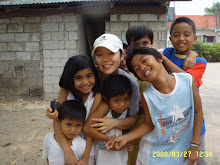Wednesday, February 7, 2007
I didn't like... -log #8
Something I didn't like about this book was the fact that the author put so much information about philosophers and ancient philosophy. This made the story itself not very interesting. A little less information, and some more dramatic scenes and maybe a bit of mystery would have made the book more thrilling and exciting to read for me.
The information of the subject of philosophy was intriguing, but in my opinion, not intriguing engouh to draw the reader's attention until the end of the book.
Changed my mind...-log #7
I changed my mind about my opinion of my life, because this book made me feel that we are not exactly living in a normal world, living on this planet called Earth. Many people tend to ignore significant questions as they go on with their daily life routine that should be at answered at least once in a while. Questions such as "who are you?" are questions that we think are not necessary, but that is not true. If someone had asked me "who are you?" before I read this book, I would have answered "I am a freshman in TCIS, and my name is Lucia Jeong". After I started reading this book, I started to think more and more about who I was in this world and the community. I started to ask myself questions such as "who am I in this world?" or, "what kind of person am I to the community?".
It was quite interesting to see my thought changing. I could notice it in myself.
Friday, February 2, 2007
I admire... -log#6
I admire Sophie for her bravery, the way she is handling her situation, and her curiosity for different things. In the very beginning of the book, Sophie starts to get mysterious letters from an anonymous person asking her strange questions such as "Who are you?" , and "Where does the world come from?". If I was in Sophie's shoes, I would have just thought about them, then forget about them after a while or just ignore them since they were from a person that I didn't know. Sophie, actually responded and even met the 'little messenger'.
When the correspondent calls Sophie and tells her to come to the big church around 5:3o in the morning, Sophie does not hesitate and goes there to actually meet the mysterious man. I don't think I would have done that. Maybe because my courage lacks in that kind of situation, or maybe I just wouldn't want to get up so early to meet a man that you don't even know that well.
Thursday, February 1, 2007
The most important... -log#5
In my opinion , the most important word (sentence, paragraph) in this book is... because...
In my opinion, the most importnat sentence in this book is "Wisest is she who knows she does not know". There are quite a few reasons why I chose this sentence. First of all, the impression that I had after I read this sentence was confusion of wondering what it meant, fascination, and the urge to read the sentence over and over. Second, the way how the writer wrote this sentence was qutie remarkably written. It took me a few moments to look and understand the sentece. In the end, I interpreted as something like the woman or girl who knows that she doesn't know anything about the world is the wisest person in the universe.
For a book that is entirely about philosophy , I think "Wisest is she who knows she does not know" is the sentence that is most important and intriguing.
Monday, January 29, 2007
This book... -log#4
This book made me think about the history, long time ago when the philosophers Socrates, Plato, and Aristotle were still alive. Reader one particular part of the book, I felt Socrates and Jesus had somehting in common. Both Socrates and Jesus announced the truth even if their life was in danger. No matter what, they declared the truth and death the consequence for both of them was death. They coudl certainly have saved themselves by appealing for mercy, but they both felt the had mission to finish. Of couse, I'm not suggesting that jesus and Socrates were alike, just merely the fact that they both had a message that was inseparably linked to their personal courage.
In another part of the book, it made me think about how philosophers resemble to children of young age. I noticed that most children tell the truth, no matter what kind of situation they are in, for example, the story with the emperor, a little boy, and two sly men. When the emperor wore the clothes the two men had made for him (which is actually nothing at all), everyone admired how beautiful and gorgeous it was even though they couldn't see it. A little boy, however, who was watching called out that the emperor wasn't wearing anything at all! Now, I don't think anyone would have done that if they knew what kind of situation they were in (I wouldn't have told the truth), but the boy told the truth anyway. As I said before, philosophers are like this. They let the world know the truth even if it would cause them trouble or even death.




